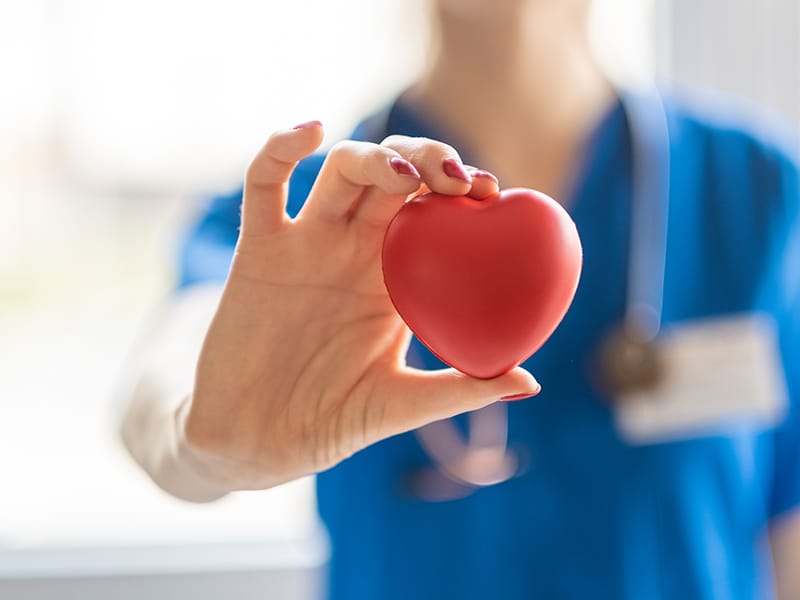COVID-19 has upended daily life and created stress for everyone, but the pandemic has hit healthcare workers especially hard.
Between juggling caregiving responsibilities of patients and families, managing resources that are in high demand, and staying up to date on the latest developments in all things COVID-19, it’s no wonder why so many doctors, nurses, and other medical professionals are feeling strained.
“I think everyone feels the pressure of COVID-19,” says the Rev. Caesar Rentie, vice president of pastoral care for Methodist Health System. “It’s an extremely stressful time.”
But one bright spot has been the way employees have come together, he says. The pandemic hasn’t stopped the staff from finding new ways to support themselves and each other in a crisis.
1. HAVING A SERVANT’S HEART
Several of Methodist Health System’s best have stepped up in a big way, volunteering to man the COVID-19 units so their co-workers can feel safer and experience less stress.
One nurse, Dawn Morrison, RN, at Methodist Mansfield Medical Center even went as far as to open her home to other employees for quarantine, so they wouldn’t have to pay for a hotel or place their families at risk of infection. Along with staff nurse Leah Barbee, RN, they have also helped others whose spouses were laid off by offering gift cards, food, and other necessities.
Everyone has been leaning on one another, says Rev. Elias Lopez, director of pastoral services for Methodist Health System. Many floor managers take time to check in regularly with their colleagues and talk through their experiences.
“They’re supporting each other, lifting each other up, and encouraging one another,” he says.
2. STAYING CONNECTED
Today’s technology makes it easy to reach out, even from a distance, and Methodist Health System is taking full advantage when combatting COVID-19-related stress.
With virtual support groups, such as MHS CARES and MHS CARES4DRS, employees can get advice and listen to experts talk about self-care topics, from spiritual and emotional wellness to post-traumatic stress.
One staff member wrote to say the virtual meeting she attended gave her a sense of validation.
“We’re all navigating this pandemic as best we can, and today’s presentation was just what I needed,” she wrote.
3. FOSTERING RESILIENCY
Think of the fight against COVID-19 as a marathon, not a sprint. Making sure frontline workers maintain a resilient spirit is key.
That’s why Methodist Health System launched a program featuring the teachings of Amit Sood, MD, a nationally renowned expert and author on emotional resilience. A small group of doctors, nurses, wellness coaches, hospital chaplains, and managers have already signed on.
The program offers online meetings and exercises that explore ways to practice mindfulness, gratitude, and kindness in their daily lives.
“We have a schedule and meet virtually every few weeks to discuss our progress through the content and how we feel it’s impacting our lives, professionally and personally,” says Laura Sweatt, MSN, RN-BC, director of the Magnet program at Methodist Mansfield and one of the program’s leaders.
4. PRACTICING SELF-CARE
As any health expert would tell you, prioritizing your mental and physical well-being is a must when coping with stress.
Methodist Health System hospitals handed out aromatherapy patches and inhalers to help soothe anxiety among its staff. Methodist Charlton and Methodist Dallas Medical Centers made space for specially designed rooms where employees could refresh and regroup.
“It’s a place where people can find a bit of respite and get away for a bit while they’re on these difficult shifts,” Rev. Rentie says.
Some hospital workers have also had to self-quarantine for two weeks because they were exposed to COVID-19. In those cases, they were sent care kits containing essential items and activity books to help them through their isolation periods.
“We also put a note in there just to let them know we’re thinking about them and that they can call on us any time,” Rev. Rentie says.
5. SHOWING GRATITUDE
The staff has also benefited from a huge and ongoing blessing: overwhelming support from the community.
Residents across Dallas-Fort Worth have sent hundreds of gloves, masks, and other personal protective equipment.
Also, restaurants have generously donated meals to feed exhausted employees who sometimes don’t have time to get food for themselves.
“We have seen a tremendous outpouring of support. It’s just been amazing,” says Joanna Bender, RN, BSN, surgical services education coordinator at Methodist Richardson Medical Center. “We’ve received everything from meals and snacks to scrubs, energy drinks, and thousands of masks. We are so grateful.”

